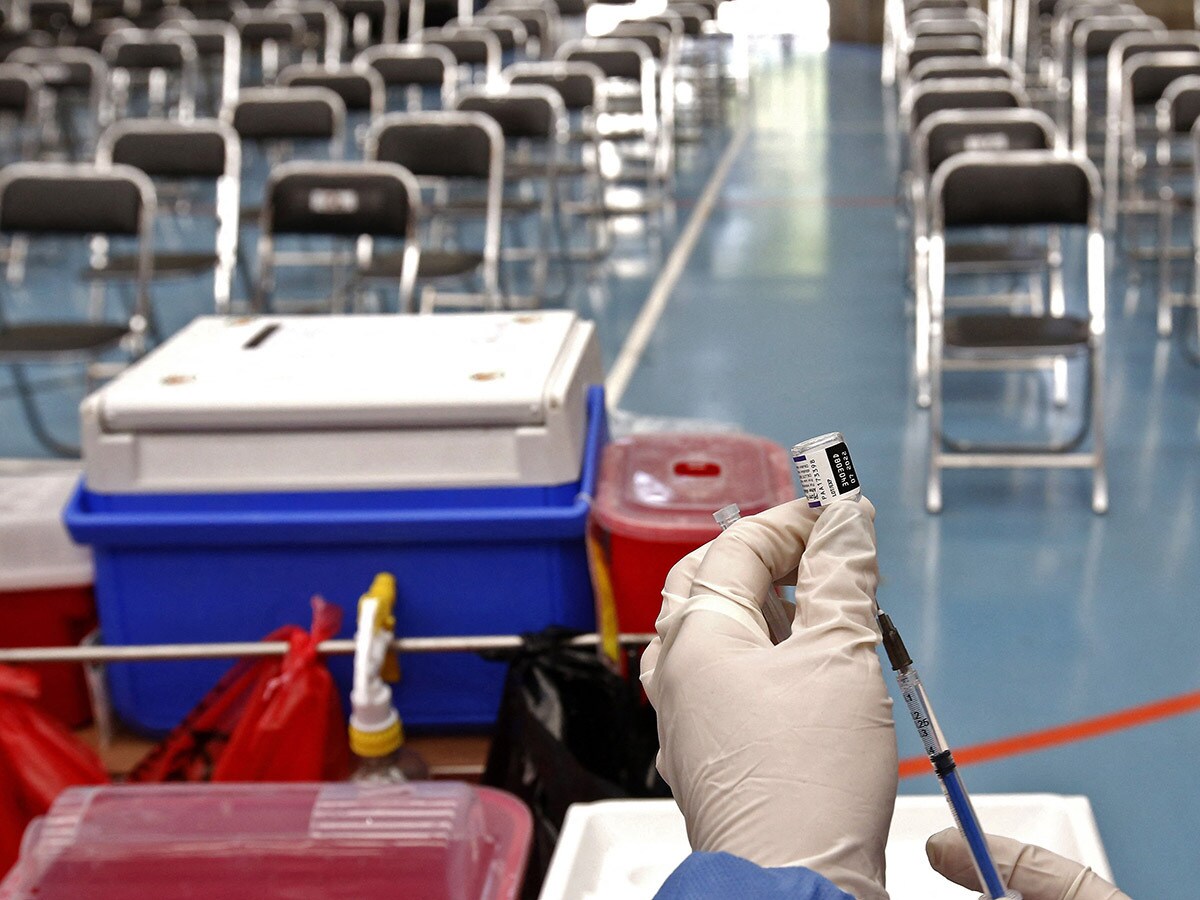The AstraZeneca share price is on a bull run right now. Boosting sentiment are analysts upping their price targets, recent acquisitions and strong financials.
Over the past month the stock is up 19.8% (as of Friday 8 April), outpacing rivals GSK [GSK.L] and Pfizer [PFE]. Year to date, AstraZeneca [AZN.L] has delivered a healthy 25.95% return for investors, beating the wider FTSE 100’s more muted 2.27% gain.
Yet, the stock could be hit by a forecast drop in Covid-19 vaccinations in 2022. Can a diversified portfolio make the pharmaceutical giant standout from vaccine plays and deliver further returns for investors?
Will a drop in vaccination demand hurt AstraZeneca’s share price?
Along with Moderna [MRNA] and Pfizer, AstraZeneca is one of the biggest manufacturers of Covid-19 vaccines. Demand for vaccinations has halved since the start of the year, according to health data group Airfinity.
Reluctance to take booster shots in rich countries and trepidation over vaccines in lower-income countries has led to a rapid drop in vaccines being administered. Airfinity now expects 6 billion does to be administered in 2022, down from a previous forecast of 9 billion.
For AstraZeneca, its diversified portfolio of treatments gives it some resilience as demand decreases. When AstraZeneca’s Covid-19 vaccine was excluded from the drug maker's 2021 results, revenue still gained a healthy 23% year-over-year.
Pfizer, which is a major rival to AstraZeneca, delivered a 92% jump in operational growth in 2021 with revenues totalling $81.3bn. Driving revenue were sales of Pfizer’s Covid-19 treatments Comirnaty and Paxlovid. Excluding the revenue from these treatments sees a 6% growth in revenue.
Moderna, on the other hand, is primarily known for its mRNA Covid vaccine. This year the company’s revenues are forecast at $21.87bn, representing a 18.4% year-over-year gain, before slumping to $11.19bn in 2023, a 48.8% decline. This, perhaps, partly explains why Moderna’s share price has fallen roughly 36% since the start of this year.
A diversified portfolio pays off for AstraZeneca
AstraZeneca’s strong performance can be tied to its robust financial performance. For the full year 2021, AstraZeneca posted core earnings per share of $5.39, up 37% year-over-year and beating its own EPS guidance. In comparison, GSK’s adjusted earnings per share were up 9% year-over-year in 2021.
Underpinning the financial results was a diverse pipeline of treatments. Pascal Soriot, AstraZeneca's chief executive, said that the financial performance had been driven by “strong growth across our diversified business areas in multiple geographies” during an earnings call with analysts.
Soriot added that total revenue growth was strong, highlighting the double-digit revenue growth of Covid-19 vaccine Vaxevria in emerging markets. In 2021, the company had 14 positive Phase III trials across nine medicines.
“This is the strength of our model, a diversified portfolio with several blockbusters. We’re not depending on one or two large products. We have a whole range of blockbuster products,” Soriot told analysts.
In March, AstraZeneca further diversified its business by taking a $33m stake in UK health start-up Huma. As part of the deal, Huma will acquire AstraZenca’s Amaze platform, which has been developed for asthma and heart failure patients. The deal will help Huma expand into the US and help AstraZeneca build out its digital health offering.
Deutsche Bank back AstraZeneca’s share price
At the start of April, Deutsche Bank hiked its price target on AstraZeneca. In a note to investors, analysts at the bank said they were sceptical about any turn towards value stocks at the expense of growth stocks. Normally, a high interest rate environment would be a problem, but the analysts don’t see AstraZeneca’s strong start to the year slowing down.
“This being a geopolitically challenged stagflationary-susceptible situation, normal perhaps doesn’t apply and indeed pharma has had a strong relative start to the year that may well continue,” wrote the analysts.
Deutsche Bank analyst Emmanuel Papadakis raised the firm’s price target on AstraZeneca to 11,500p from 10,500p, maintaining a ‘buy’ rating. JP Morgan’s James Gordon also upped his price target at the start of April from 12,000p to 10,000p. Gordon has an ‘overweight’ rating on the stock.
As it stands, analysts polled by Refinitive have a median 10,227.47p price target on the stock, suggesting a 6.4% downside. The most bullish price target is 13,035.06, which represents a 19.3% upside on Friday’s close.
Continue reading for FREE
- Includes free newsletter updates, unsubscribe anytime. Privacy policy





